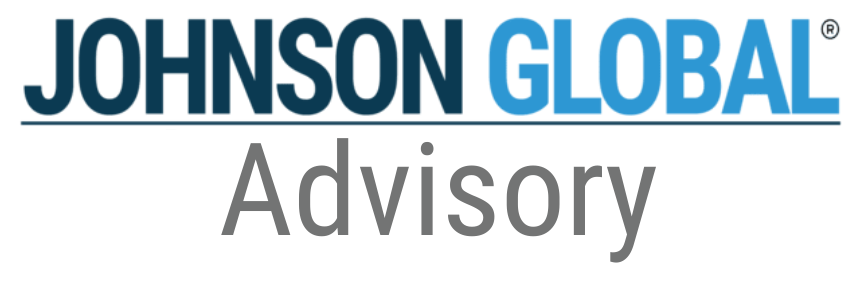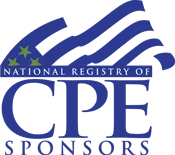Why do we need new Quality Control Standards? Don't we have them already?

As it has been 6 months since the PCAOB released its Quality Control (“QC”) concept release and 3 months since the comment period closed (with over 30 interested parties providing comments on the concept release), we plan to produce over the next few months a series of monthly blog posts discussing various aspects of the QC concept release. So, to start out, the obvious question may be “why do we need new QC standards? Don’t we already have well-established QC standards?” Well, there are a number of reasons why this thinking is flawed.
Current QC standards are outdated.
For starters, the current QC standards are AICPA holdovers that were implemented mainly during the 1990s, which the PCAOB then itself adopted way back in 2003. In the 17 years since the PCAOB’s inception, the board has issued a significant number of auditing standards, including standards related to audit documentation, auditing estimates, and auditing internal control over financial reporting (remember we even started out with Auditing Standard No. 2 and then moved on to Auditing Standard No.5!). Whereas none of the QC standards have changed. It’s clear that the PCAOB has been actively updating and modernizing the individual auditing standards, whereas the QC standards have remained stagnant.
There is more inspection history to inform policy and quality improvement.
The PCAOB has conducted inspections for over 15 years and although there has been improvement in the number of inspection findings during this time, the audit regulator continues to find issues in individual audit engagements and weaknesses in firms’ systems of quality control. The PCAOB believes that the time has come to modernize the QC standards which will help to drive further improvements in audit quality. Modernizing and updating the QC standards could do more to prompt firms to take a proactive approach to managing audit quality.
Over many years, the accounting profession as evolved, but policies remain the same.
There have been significant changes to the financial reporting and auditing environments as well as significant innovations in technology over the last few decades (i.e. computers and the digital age!). Even the structure of audit firms and the way they service their clients has changed. And yet throughout this same time-period there has been no updates or revisions to the QC standards. As Board Chairman Duhnke stated, “The current quality control standards may no longer be sufficiently resilient to remain relevant. It is appropriate to revisit and modernize those standards now.” 1
QC standards are a global issue.
The PCAOB is correct to acknowledge that this is not a US-specific issue. The International Auditing and Assurance Standards Board (“IAASB”) is also taking a similar path to update its QC standards. The PCAOB plans to leverage IAASB on their proposed standard, ISQM 1 2 , and supplement it with requirements for certain aspects of a firm's QC system that the PCAOB feels either warrants greater attention or are specific to the US markets. Global firms (and even regional firms) are increasingly managing audit quality on a centralized, network-wide basis. The PCAOB is hoping that by molding its QC standards similar to ISQM 1, it will minimize differences between its QC standards and international standards which will redirect time spent by firms on compliance to areas that directly affect the quality of audits they perform.
So why not just issue a proposed rule for public comment?
The idea for issuing a QC concept release rather than a proposed rule was to obtain broader feedback from all the interested stakeholders before heading down an unpopular path. Clearly, QC standards are a complex and contentious area and the PCAOB wants to strike the right balance in this important area for investors, audit committees, audit firms, and other interested parties. By hearing from all interested parties, the PCAOB is following its path of implementing regulations that everyone can live with.
Clearly the time has come for the auditing profession to take a long, hard look at its own quality controls and processes (with the goal of doing a SOX-type audit of itself). The fact that QC issues are still being identified during inspections implies that the current standards are ineffective and not in touch with the current times. Hopefully, the QC concept release will be able to provide some lifeblood and incentive for firms to improve their QC processes.
1 PCAOB Open Board Meeting statement on December 17, 2019
2 International Standard on Quality Management 1 (ISQM 1), Quality Management for Firms that …. Audits or Reviews of Financial Statements, or Other Assurance or Related Services Engagements, as proposed by the International Auditing and Assurance Standards Board (IAASB).
Geoff Dingle, JGA Managing Director, works with PCAOB-registered accounting firms helping them identify, develop, and implement opportunities to improve audit quality. With over 20 years of public accounting experience, he spent nearly half of his career at the PCAOB where he conducted inspections of audits and quality control. Geoff has extensive experience in audits of ICFR and firms’ systems of quality controls. Prior to the PCAOB, he worked on audits in various industries at Deloitte in Atlanta and Durban (South Africa).
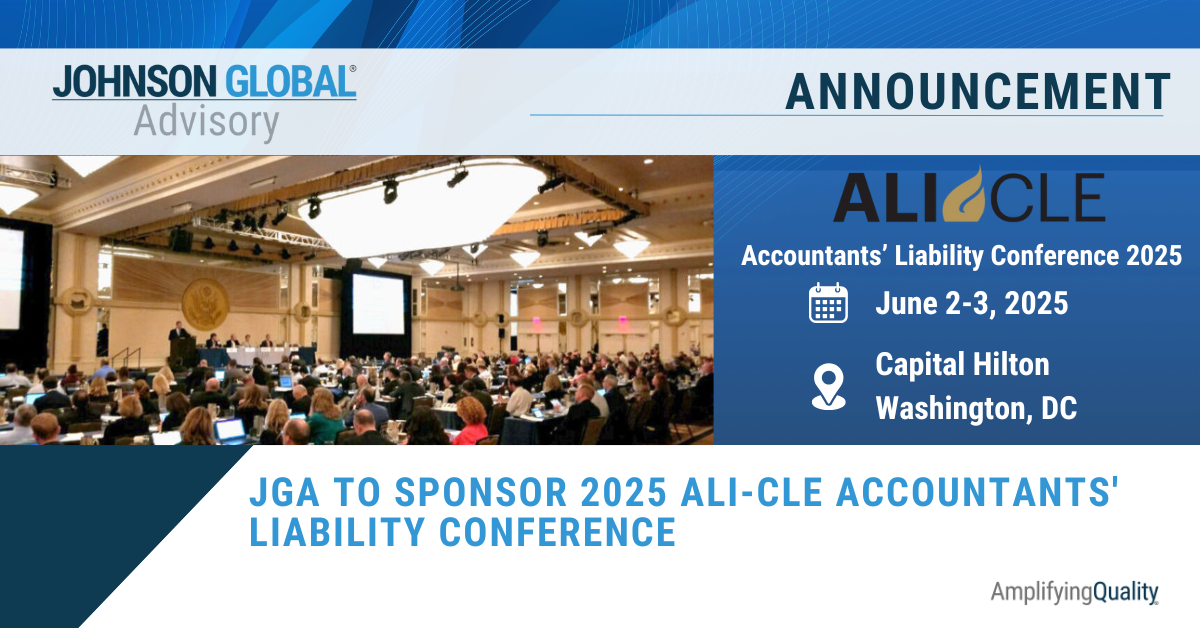



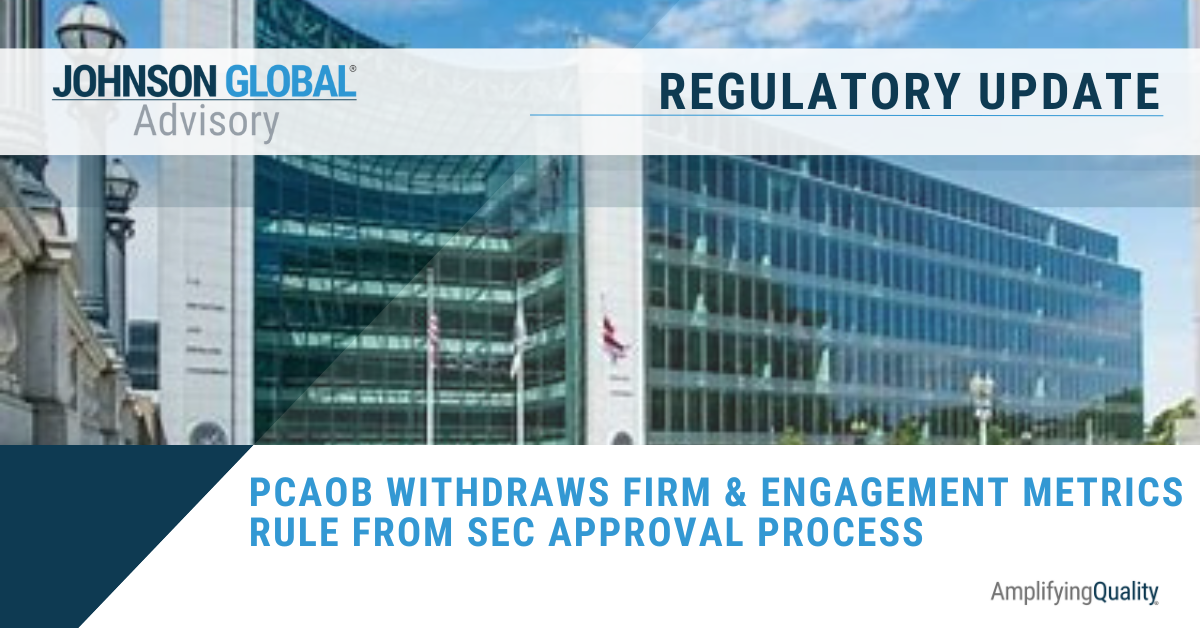
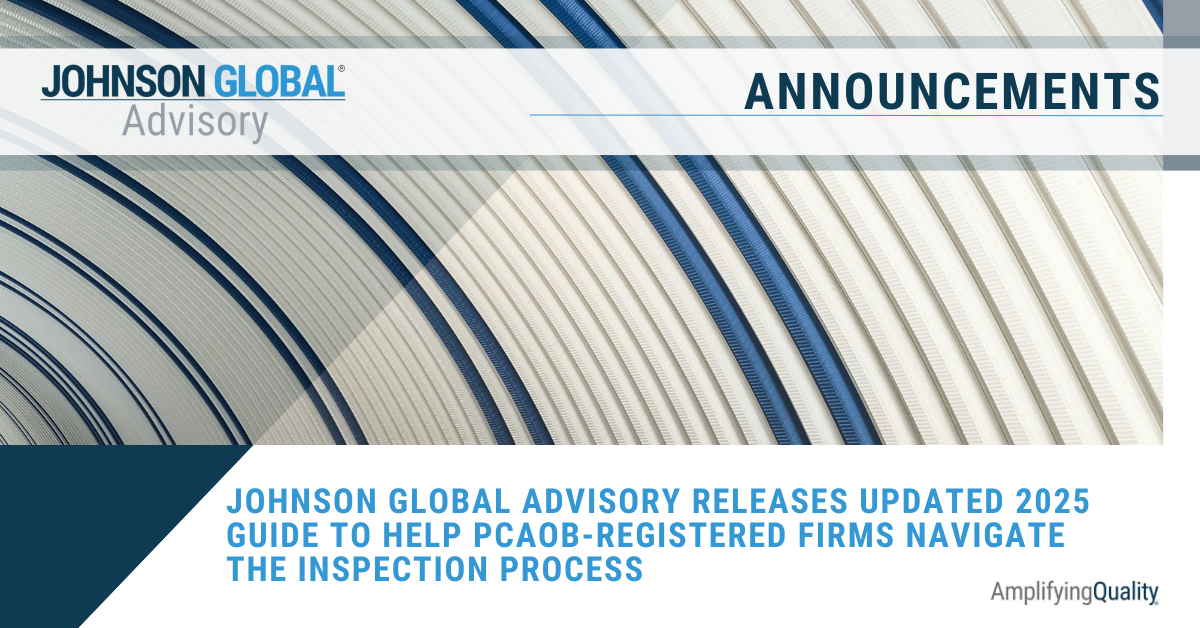

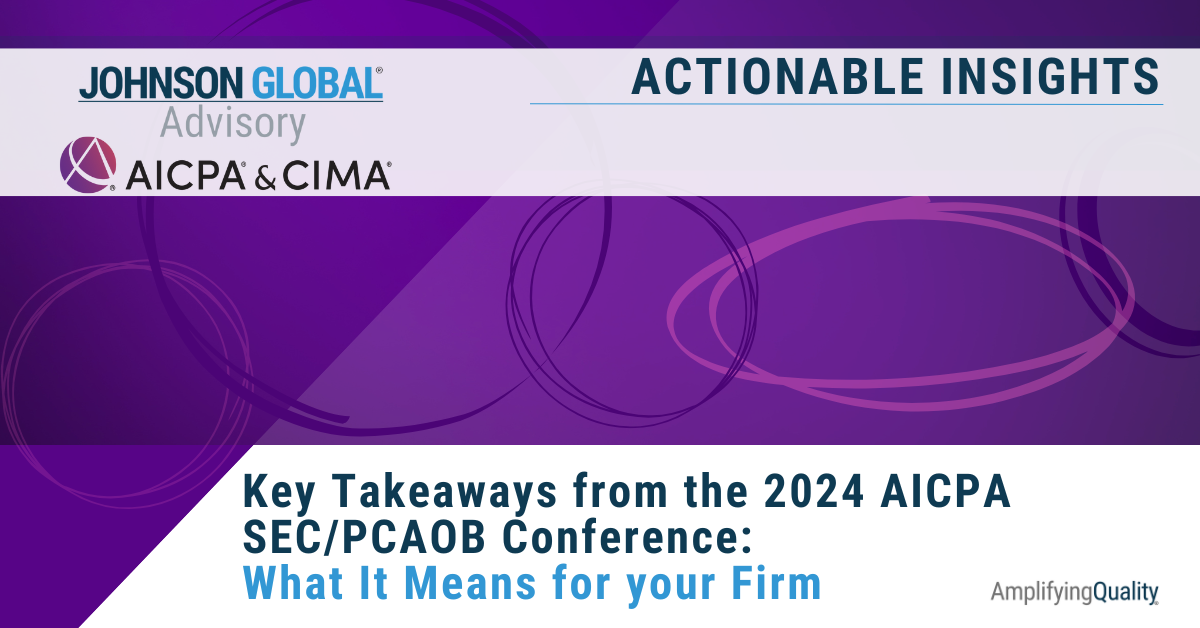
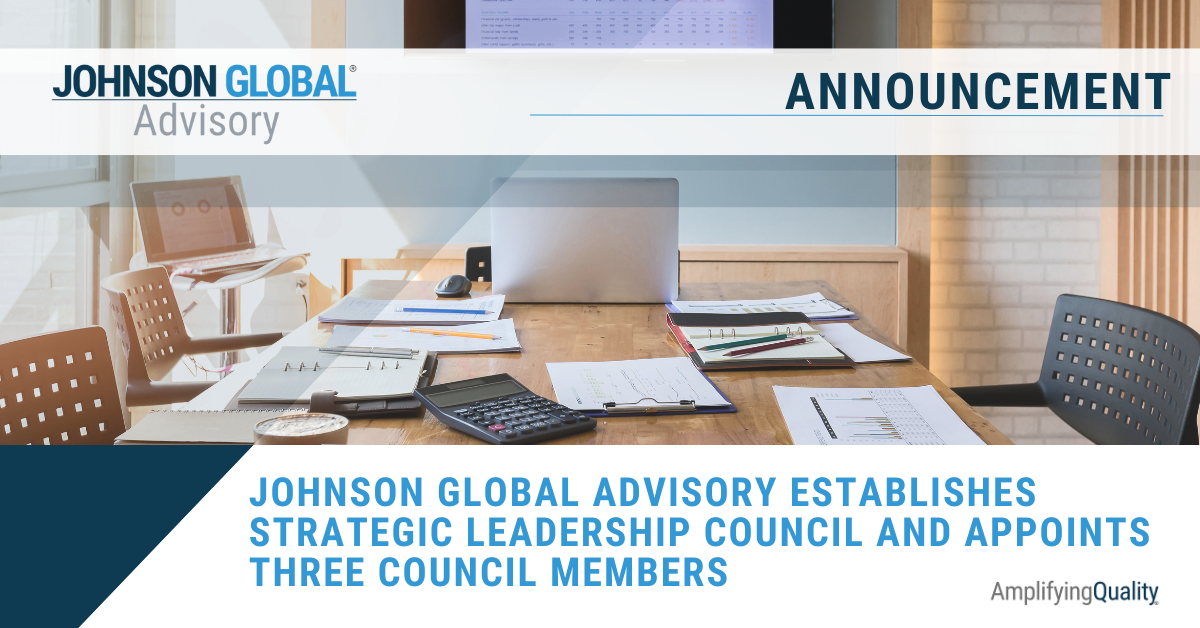

Johnson Global Advisory
1717 K Street NW, Suite 902
Washington, D.C. 20006
USA
+1 (702) 848-7084
